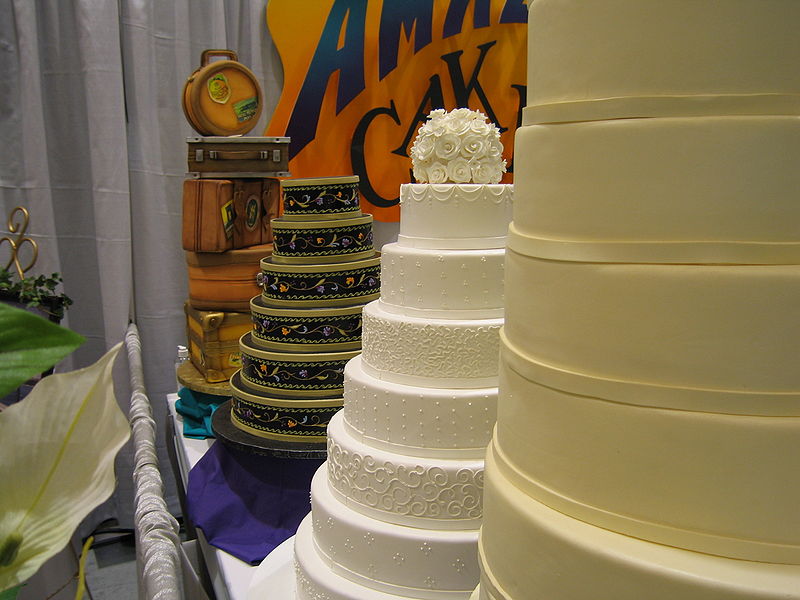Hi’s Eye slices into wedding cake debate
Pro: Let them eat cake and savor equality
by Natalie Becker
June 26, 2015. On this day, the U.S. Supreme Court ruled that the Constitution guarantees a right to same-sex marriage. Later, President Barack Obama announced that “all Americans are entitled to the equal protection of the law; that all people should be treated equally, regardless of who they are or who they love.” But are we really taking those steps forward to ensure equality?
Fast forward two years, and on June 26, 2017, the Supreme Court agreed to review Masterpiece Cakeshop v. Colorado Civil Rights Commission. In 2012, Charlie Craig and David Mullins were denied a wedding cake from baker Jack Phillips, who represents Masterpiece Cakeshop of Lakewood, CO. The same-sex couple filed a complaint with the Colorado Civil Rights Commission, claiming that Phillips’ refusal violated the Colorado Anti-Discrimination Act (CADA). Phillips claimed that the couple’s allegation infringed upon his First Amendment right to freely exercise his religion.
However, this dispute is about more than just a wedding cake. It is a bigger battle between those conservatives who are overreaching in application of First Amendment rights, and those standing up against the undermining of LGBTQ civil rights. With the Supreme Court expected to issue its ruling later this month, the time is now to understand that exerting religious rights does not surmount decades’ worth of fights for equal rights.
Justice Anthony M. Kennedy, who is the court’s major swing vote, has indicated that his ruling could go either way. If he swings in support of the claim that Phillips’ right to free speech and free exercise of religion was violated, then what is stopping a waiter or a flight attendant from refusing service to gay couples, too?
This religious-rights argument proposes a complete exemption not only from CADA, but also from civil rights laws as a whole. It is only right to keep all the LGBTQ civil rights laws intact, as a ruling in favor of Craig and Mullins would be a huge step forward for humanity—and deserving of some celebratory cake that everyone can eat.
Con: Refusing to bake is a right, too
by Daniel Han
Masterpiece Cakeshop should bake the cake. However, they should also have the right not to.
It has been established that under the First Amendment, citizens cannot be compelled to express speech with which they do not agree, a statute determined by the landmark case West Virginia State BOE. v. Barnette. In the case, it was decided that students did not have to stand for the Pledge of Allegiance, a right granted to them under the free speech clause of the First Amendment.
So how does this relate to the cake?
Baking a wedding cake with a message is a form of speech. If Mr. Phillips is asked to design a cake that explicitly violates his religious beliefs, he should not be compelled to make it. Forcing him to do so would be an infringement on his First Amendment rights.
However, if he designs a cake he would presumably sell to a straight couple (one that says “Happy Wedding”), he should sell it to the gay couple as well, since the message on the cake is not one that is explicitly against his beliefs. This could be a compromise to both the left and right.
Opponents fear that this scenario will send LGBTQ rights to an era reminiscent of Jim Crow discrimination. However, this will not be the case. The LGBTQ community will still be protected from discrimination in public accommodations, as the ruling would only apply to services that express messages against the business owner’s religion.
Above all, people will be protected plainly by the fact that discrimination is bad for business. Since the case started, Phillips’ shop lost 40 percent of sales: Simply put, economic repercussions will be a strong deterrent for many businesses looking to abuse this ruling.
The outcome of this case will not uphold hatred or bigotry, but will defend the rights granted to America’s citizens. In a perfect world, we would “let them eat cake”—but such a choice would come at the expense of American liberties.

